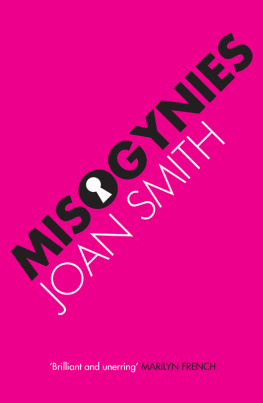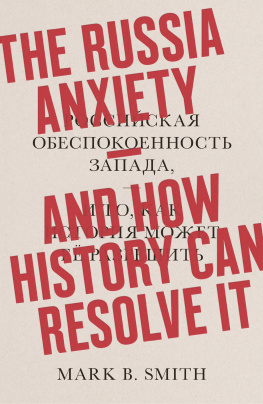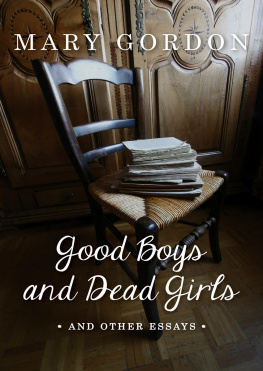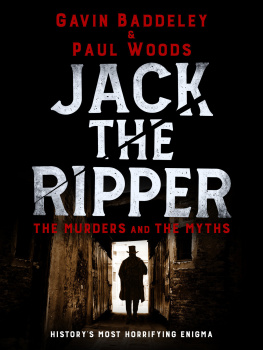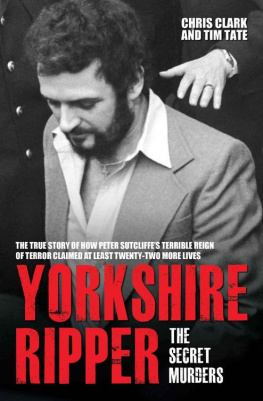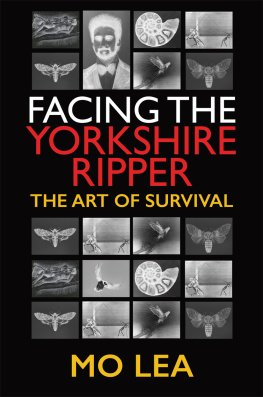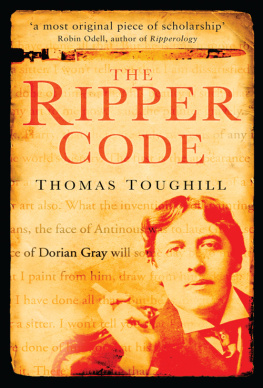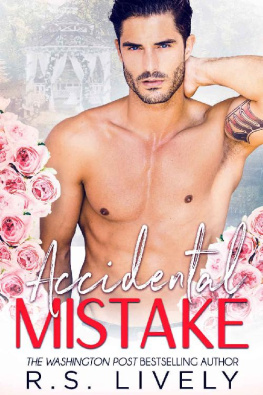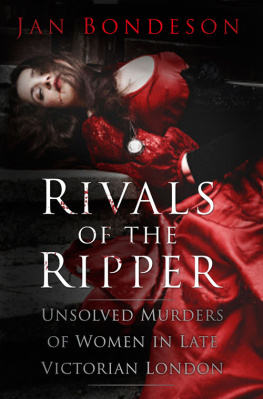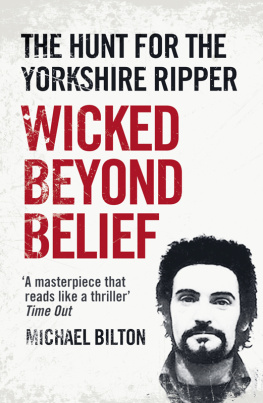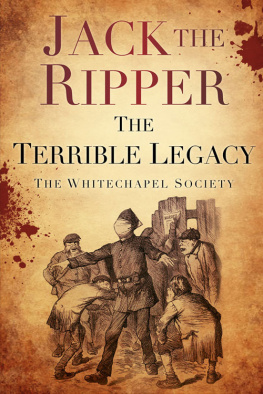MISOGYNIES
Joan Smith

Joan Smith is a novelist, columnist and human rights activist. She has been involved in campaigns for free expression, authors rights, and literacy in Sierra Leone. She currently speaks for Hacked Off, the organisation which represents victims of phone hacking. She is an honorary associate of the National Secular Society and supports Republic, the campaign for an elected head of state.
http://politicalblonde.com /
@polblonde
ALSO BY JOAN SMITH
Fiction
A MASCULINE ENDING
WHY ARENT THEY SCREAMING?
DONT LEAVE ME THIS WAY
WHAT MEN SAY
FULL STOP
WHAT WILL SURVIVE
Non-Fiction
CLOUDS OF DECEIT
HUNGRY FOR YOU
DIFFERENT FOR GIRLS
MORALITIES
FEMMES DE SIECLE (ed)
THE PUBLIC WOMAN
For Gill Williams
CONTENTS
Is it not really remarkable (we ask ourselves in amazement), when one considers the overwhelming mass of this transparent material, that so little recognition and attention are paid to the fact of mens secret dread of women?
Karen Horney, The Dread of Women, 1932
Women have very little idea of how much men hate them.
Germaine Greer, The Female Eunuch, 1970
Its then I think ont Ripper
an what e did an why,
an ow mi mates ate women,
an ow Pete med em die
Blake Morrison, The Ballad of the Yorkshire Ripper, 1985
PREFACE TO THE 2013 EDITION
Thousands of books are published every year. Some become bestsellers, many more are forgotten except for occasional copies which turn up in second-hand book shops. I have been very lucky: Misogynies was first published in 1989 and is still being talked about, often these days on social networking sites such as Twitter. Its a curious and moving experience to get messages from strangers, telling me how the book affected them. When I wrote it, I wanted readers to recognise this entity, misogyny, which seemed to me to have distorted relations between men and women for centuries.
What I didnt expect was the number of people who said it was the experience of reading the book that turned them into feminists. I have been a feminist as far back as I can remember. I think it came out of being an only child with a clever and politically-engaged father, who wanted his daughter to have all the opportunities he had missed. He left school at 14 and became a gardener, and as I grew up I was the person he talked to about ideas and politics. I thought it was quite normal to discuss Marx and Mao at home, to go to meetings and hear politicians speak, and oppose the Vietnam War. Without knowing the word, I was brought up with an assumption of equality and it never occurred to me that I was just a girl. That seemed to be the automatic assumption of a lot of people, however, so my experience in my teens and 20s was one of perpetual astonishment. Even when I arrived in the offices of a national newspaper, where Id got a dream job with a team of investigative journalists, half the readers who called seemed to assume I was their secretary.
I said in the original introduction to this book, which Ive kept for this edition, that it began with the Yorkshire Ripper murders. Thats true, in the sense that it brought a lot of my ideas about men and women into focus. The murders seemed to me a pure manifestation of misogyny, the consequence in one disturbed individual of the suspicion and dislike for women which I saw all around me. Peter Sutcliffes hatred of women was extreme but it wasnt unique, which was one of the reasons why the police had such trouble catching him. They thought he would stand out and I thought exactly the opposite: that he could hide quite easily in a culture which often displayed casual contempt for women. It later emerged that Sutcliffe had been interviewed ten times without ever becoming a serious suspect.
My experience of the police inquiry was so searing that I had nightmares about it for years. To begin with I thought about writing a book about the murders but I gradually realised I needed to do more than describe the shortcomings of the investigation. I hadnt heard the phrase conducive context in those days but I wanted to write about the assumptions which allowed someone like Sutcliffe to come into existence. Misogyny isnt just hatred or fear of women, although both those emotions are involved, but a whole series of slighting and dismissive attitudes. At the heart of it is the idea that women are defined and limited by gender in a way men arent, and that theyre right to distrust us as a result. Its an outright rejection of the assumption of equality I enjoyed as a child, and I knew it wasnt confined to popular culture; my training as a Classicist allowed me to trace its roots back thousands of years. Once I started writing, the words poured onto the page, even though it wasnt unusual to get blank looks when I mentioned what I was writing about.
That all changed when the first edition of the book was published by Faber & Faber. The first print run sold out before publication and suddenly everyone was talking about misogyny. I was praised and attacked; in a bizarre inversion, sections of the right-wing press accused me of hating men. But the nightmares stopped and I began getting letters from readers of both sexes who said the book had explained anxieties theyd had for years. They understood that what I was calling for was an end to all this rancour between the sexes, which was based on age-old but profoundly wrong ideas about the nature of women.
Since then, things have got better and worse. The idea of gender equality is much more widely accepted, written into domestic laws and international treaties, but were also having to deal with phenomena such as sex-trafficking and honour crimes. Ive written about them in a new book, The Public Woman, which is being published at the same time as this re-issue of Misogynies. The new book develops ideas in the original text, responding to the changed circumstances of the twenty-first century, but Misogynies seems as relevant as ever. So here it is, with a couple of chapters I added for the American edition in 1992. I wont say I hope you enjoy it because its not that kind of book. But I am convinced feminism matters as much as ever and if it reaches a new generation of women and men, Ill be very happy.
Joan Smith
London, January 2013
INTRODUCTION
If this book has a single starting-point, it is the case of the multiple murderer Peter Sutcliffe, universally known as the Yorkshire Ripper. Ten years ago, in 1978, I arrived at a radio station in Manchester as an enthusiastic but inexperienced journalist. I was twenty-five, keen to get on, and new to the city. I expected life to be packed with exciting news stories, which it was, and one of them happened to be the continuing saga of the Yorkshire Ripper. By that time he was thought to have killed ten women, two of themin spite of the nicknamein Manchester. A few months later, in April 1979, Josephine Whitaker, a building society clerk, was savagely murdered in Halifax. I was sent to a police press conference where I interviewed George Oldfield, head of the band of West Yorkshire detectives known as the Ripper Squad, and was dismayed by his masculine bluster and the unhealthy scarlet that suffused his round face. As yet, my lack of confidence in him was unformed, built on little more than a fleeting impression, and I was more deeply affected by the nightmare horror of the case: eleven women dead in a manner which had not been revealed but was rumoured to involve terrible mutilations; several others alive but haunted by memories of their terrible ordeal at the hands of the killer. Like other women working at the radio station, I was constantly aware of my dual role of reporter and potential victim; by day I reported the latest developments in the story, by night I could not sleep when I returned to the Manchester suburb where I lived alone. One off the early victims had died in her own home, and my professional status was no protection; I already doubted the polices strongly I held conviction that the murderers prime target was prostitutes. Why I felt this I cannot really say, other than that it seemed too glib, too psychological an explanation. What I was struck by, I suppose, was the fact that these were crimes directed against

